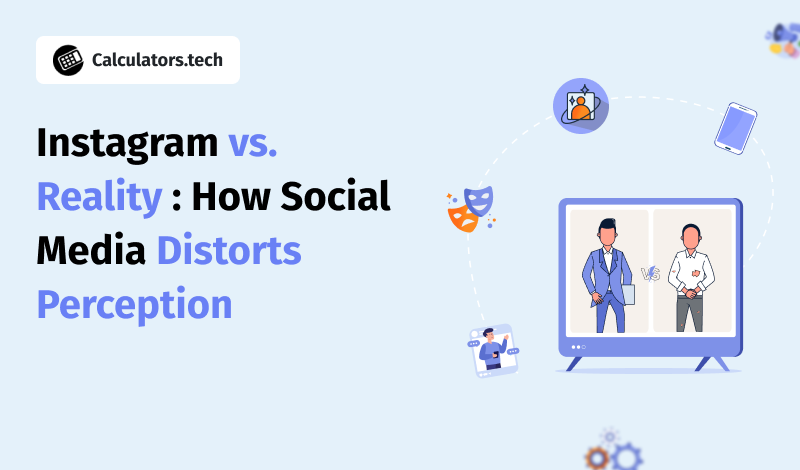In a world where scrolling through Instagram feeds has become as routine as brushing your teeth, it's easy to forget that what we see online often isn't the full picture. With perfectly filtered selfies, carefully curated travel photos, and polished reels showing highlight moments, Instagram paints a version of life that’s more idealized than real. This growing contrast between what’s portrayed and what’s actually happening behind the scenes is the foundation of the “Instagram vs. Reality” discussion.
The Illusion of Perfection
At first glance, Instagram may seem like a harmless way to stay connected and inspired. But beneath the surface, it creates a culture of comparison that’s hard to escape. When you’re constantly exposed to images of people looking flawless, achieving milestones, or living what seems to be dream lifestyles, it's natural to start comparing your own life to theirs.
What we often forget is that Instagram is a highlight reel. People typically share the best parts of their lives — the perfectly plated brunch, the romantic vacation moment, the fitness transformation. What we don’t see are the messy arguments, the moments of self-doubt, or the bad days that inevitably exist. The reality behind each photo is far less glamorous than what appears on the screen.
The Role of Filters and Editing
One of the biggest contributors to this distortion is the use of filters writing websites and editing tools. Apps like Facetune and Lightroom allow users to enhance their appearance dramatically, smoothing skin, reshaping body features, or changing lighting to make any photo look professionally taken. With just a few taps, imperfections disappear and reality becomes retouched.
These enhancements can create unrealistic beauty standards that even the person in the photo can’t live up to in real life. This phenomenon doesn't just affect influencers or celebrities — everyday users also feel the pressure to edit their posts before sharing them, hoping to present their most "likeable" self.
Staged Moments, Not Spontaneous Ones
Much of what you see on Instagram is staged — from the way someone positions their coffee next to a book to the multiple takes it takes to get a jumping photo on a beach just right. These are carefully planned, not spur-of-the-moment snapshots.
For example, a photo of a couple smiling at sunset might have taken dozens of attempts, with strategic angles, lighting, and poses to capture the perfect shot. Yet viewers often interpret these images as authentic moments, feeding into the illusion that others' lives are constantly filled with joy, beauty, and love.
The Psychological Impact
The pressure to measure up to Instagram’s manufactured standards can lead to a wide range of emotional effects. Feelings of inadequacy, anxiety, or low self-esteem often stem from the sense that everyone else is doing better, looking better, or living better.
Teens and young adults are especially vulnerable, as their sense of identity and self-worth is still forming. Seeing peers or influencers seemingly “winning at life” can create a distorted sense of failure in one’s own reality, even when nothing is actually wrong.
When Curiosity Becomes Obsession
In some cases, the desire to know what’s really going on behind the scenes can push people to take things a step further. Whether it's checking someone’s followers, analyzing stories, or going through tagged photos, some users become obsessed with uncovering the "real story." For those who want to dive deeper, perhaps into a partner's or friend’s digital behavior, tools like a spy app may come into play, offering insights that go far beyond Instagram. While that taps into another level of social media surveillance, it highlights just how powerful and influential these platforms have become in people’s lives.
Embracing Authenticity
Despite the challenges, there’s a growing shift toward authenticity on social media. Influencers and users alike are beginning to share unfiltered moments, mental health struggles, and behind-the-scenes glimpses into their real lives. Campaigns like #NoFilter and #RealMe are encouraging people to break away from perfection and embrace the flaws that make them human.
This change is crucial. The more we normalize imperfection and vulnerability online, the healthier our digital culture will become. By being honest about what life really looks like — not just the parts that get the most likes — we can reduce the pressure to keep up with an illusion.
Final Thoughts
Instagram is a powerful tool, but it’s also a lens — one that often blurs the lines between reality and fantasy. By understanding how social media distorts perception, we can become more mindful consumers of digital content. The next time you find yourself comparing your life to someone else’s grid, remember: behind every perfect post, there’s a real story that rarely gets told.
